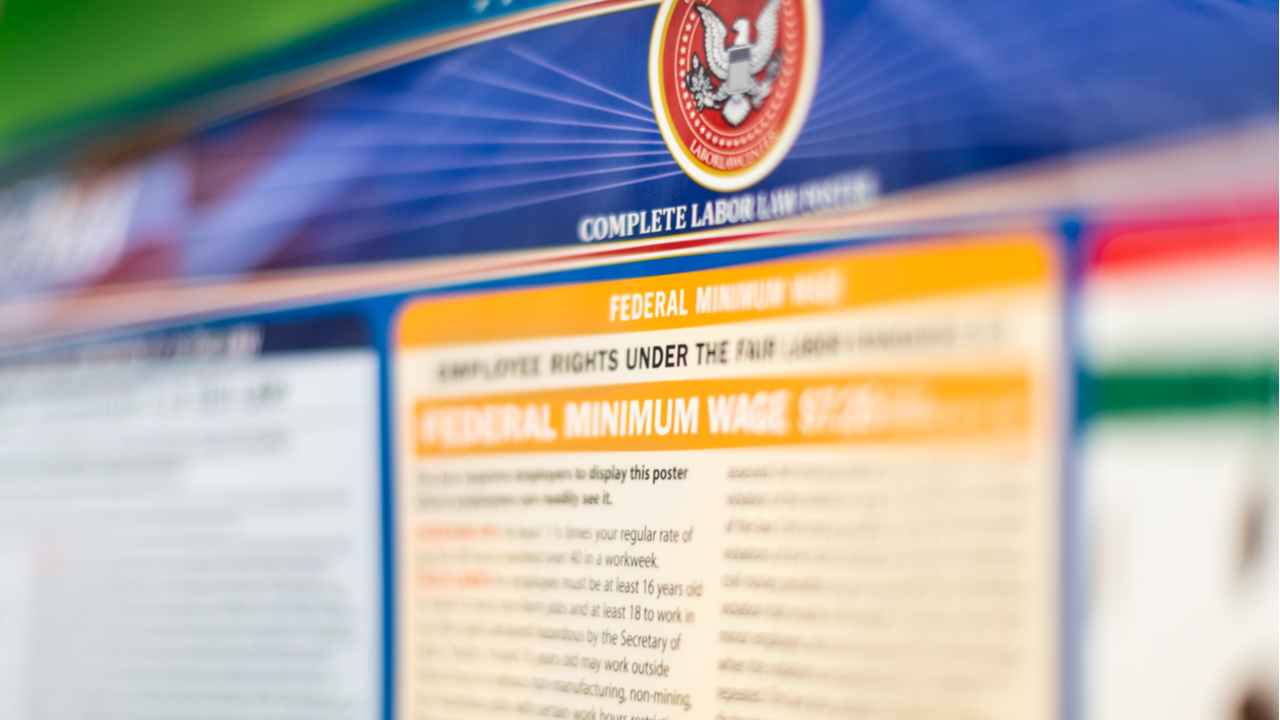The State of Nevada follows an “employment-at-will” practice. This practice means that an employer can terminate the employment relationship unless the two parties have an employment contract or collective bargaining agreement. However, Nevada courts have, in the past, used provisions stated in an employee handbook to stand as an employment contract. Given this, it is of high importance for employers to carefully think about what content they should include in an employee handbook for their business in Las Vegas.
What is an Employee Handbook?
An employee handbook is a manual that outlines relevant information about the company, its legal obligations and employee rights. It also contains essential information that the employee must know about their jobs, including:
- Company values, culture, and mission
- Company policies, rules, and procedures
- Employee benefits, compensation, and privileges
- Anti-discrimination policies
- Non-disclosure agreements & conflict of interest statements
- Rights and responsibilities
- Disciplinary, complaints and grievance guidelines
The employee handbook is necessary to ensure a workplace environment that is safe, manageable, professional, and organized under the Nevada Labor Laws. It serves as the go-to manual that contains policies and expectations.
What is the Importance of an Employee Handbook?
While no federal or state law requires employers to provide an employee handbook. However, it is something that provides valuable benefits for both employers and employees. A well-written handbook can answer frequently asked questions that would typically end up in the HR department. By checking the handbook, employees can answer most of their queries quickly. Hence, saving management time. It also provides employees necessary information that they may not know of. Finally, employee handbooks can be a source of legal protection in case an employer’s practices should be challenged in court. When something important is written, people have the assurance that both the company and its employees are in agreement and at the same level of understanding. Having a handbook:
- formalizes policies
- saves time in resolving commonly asked questions and issues
- prevents legal issues
- sets the tone for your work environment
Things to Include in an Employee Handbook (By Law)
Companies should familiarize themselves with the state, federal, and local employment laws.
Checking the listings about laws that employers need to observe on the U.S. Department of Labor’s website might help to establish the policies to create your employee handbook. Check laws and requirements mandated by the following agencies:
- United States Department of Labor
- Society for Human Resource Management (SHRM)
- Occupational Safety and Health Administration (OSHA)
Write the information that you should include in your employee handbook for your business in Las Vegas following all the policies stipulated and mandated by the law. If you are unsure of what and what not to add, consult with a lawyer or HR department.
Policies to Include By Law:
Family Medical Leave
Under the federal government’s “Family Medical Leave Act“ this provision requires companies with a specific number of employees to provide up to 12 weeks of unpaid leave anytime or during a 12-month for the following scenarios:
- Serious health condition
- Attending to an immediate family member with a serious health condition
- Birth or care of a child
Equal Employment and Non-Discrimination
The U.S. Department of Labor requires businesses to publish a post to state the company complies with the non-discrimination and equal employment opportunity laws in promoting or hiring employees.
Worker’s Compensation
Employers are required by the State of Nevada to provide the benefit of having a worker’s compensation to their employees, especially if the business has over one (1) employee. This provision must be in writing.
What to Include in an Employee Handbook for your Las Vegas Business
Disclaimers are statements that deny responsibility, and it is a must to include in an employee handbook to protect the company and its assets. The following are disclaimers that an employee handbook must have:
The handbook is not a contract
This statement must be clear. Employees must understand and know that the manual does not serve as an employment contract. If you could be more precise about it, you may state that “this employee handbook is not a contract” therefore, the company is not in any way obligated to issue employment to an individual. It is equally important to state that the employment may be ended voluntarily or involuntarily to protect the company against lawsuits in case they end an employee’s contract.
Handbook transcends former policy documents
An employee handbook should state that it replaces and takes over all previous rules and procedures inclusive of but not restricted to all memorandums or published policies issued on matters written in the employee handbook.
Handbook policies may be subject to change
Another critical factor to include in the employee handbook is the inclusion of an elbow room for changes at the employer or company’s discretion. The manual should include a clause to state that the policies and procedures are guidelines and are subject to change as the management or the company sees it fit or necessary.
Employee acknowledgment
To protect your business, ensure that all employees understand and agree with the terms and conditions. Provide an acknowledgment page for the workers to affix their signature. Don’t forget to add this file to the employee records book or the personnel files.
What You Must Include (Guidelines for the Important Sections)
Company Mission Statement
Providing a brief company background isn’t a requirement; however, including its history along with the mission statement, sets the standard for each employee. Your company’s mission statement provides a direction for each employee’s concerted effort to achieve a common aim.
Policy for Paid Time-Off
This section of your handbook explains how each employee accumulates the hours that they can use for their sick leave, personal or vacation leave. It should also state the holidays that the company observes and the corresponding compensation. Other types of leaves that need explanation are the paid time off (PTO) for bereavement, maternity or paternity leave, and jury duty.
Code of Conduct
The code of conduct lays out the expected behavior of a company’s employees. As a representative of the company, employees must comply with the company’s ethics, values, and expected behavior, especially from its leaders. Include a section on policies concerning tardiness, discrimination, sexual harassment, and progressive disciplinary actions.
Pay Policies and Assessment Process for Promotion
Outlining the policies concerning your employee salary and the process for promotion is an excellent way to motivate your employees. Define your company work hours, overtime policy, and grade pay structure. The last thing that you would want to do is throw off your employees by not being confident about how and when they will get paid. You would also want to go over the different compensation packages, bonuses, stock options, and policies concerning appraisals or promotions based on performance.
Employee Benefits
Include a summary of your company’s benefits, such as:
- Relocation Assistance
- Medical, prescription, vision, and dental plans
- Retirement benefit plans (401K plan, life insurance, long-term care insurance)
- Transportation benefits
- Paid-Time Off
Once you have everything put together, go over the things you have included in your employee handbook for your Las Vegas business, and meticulously review each section. Make sure you have done your due diligence in carrying out this important task. It will help your business to avoid litigation for issues related to your company’s code of conduct.
Related:




